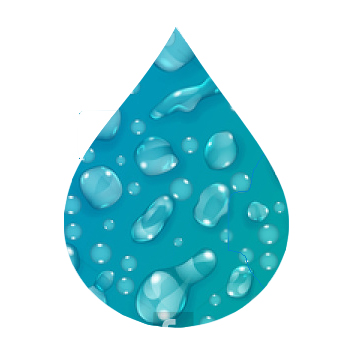

Legionella is a Gram-negative bacterium, ubiquitous to water systems, which can cause Legionnaires’ Disease. There are at least 50 species of Legionella, with 70 known serogroups having been identified. Legionella was first identified following an outbreak at a convention of the American Legion in Philadelphia in 1976, where 221 people fell ill with a “mystery disease” which was also the cause of 34 deaths. Legionella bacteria are widespread in natural water sources such as ponds, lakes and rivers, but can also be found in artificial water systems such as cooling towers, evaporative condensers, spa pools and domestic water systems if the conditions are favourable, e.g. the temperature of the water is between 20 – 45°C and a nutrient source present such as sludge, scale, rust, biofilm etc., as this will all support the bacterial growth.

Most of us don’t think about Legionella, the bacterium responsible for Legionnaires Disease, as a day to day issue. Yet statistics show that the incidence of the Disease is ever present. As hospitals routinely screen anybody with pneumonia for the infection, a steady stream of patients come back positive. Many of these isolated cases can be attributed to domestic or work environments. The Legionella bacteria will readily colonise water systems that are not properly looked after. Good management will minimise the likelihood of the Legionella growing in a water system. Putting a suitable management regime in place will significantly reduce the risk associated with this micro-organism.

Legionnaires’ Disease can be contracted by inhaling small water droplets suspended in the air (aerosol), e.g. from a cooling tower or a water outlet. The risk of contracting Legionnaires’ Disease increases with age, however, the risk also increases in people with the following criteria:

If your workplace has one or more of the following systems, you may be at risk to exposure of Legionella bacteria:
As per the Health & Safety at Work Act, 1974, all employers with 5 or more employees have a legal requirement to undertake a Legionella risk assessment of their premises. Failure to comply with the legal requirements surrounding exposure to Legionella bacteria can result in prosecution.
As a person in control of a premises (landlord or employer) you are responsible for the health and safety of the occupants and need to understand the responsibilities of reducing the risk of exposure to Legionella bacteria as per the Control of Substances Hazardous to Health (COSHH) 2002 regulations, by carrying out the following:
More information can be found at www.hse.gov.uk/legionnaires/.
Copyright © 2023 – Waterwide – all rights reserved.
Contact: 01584 781700